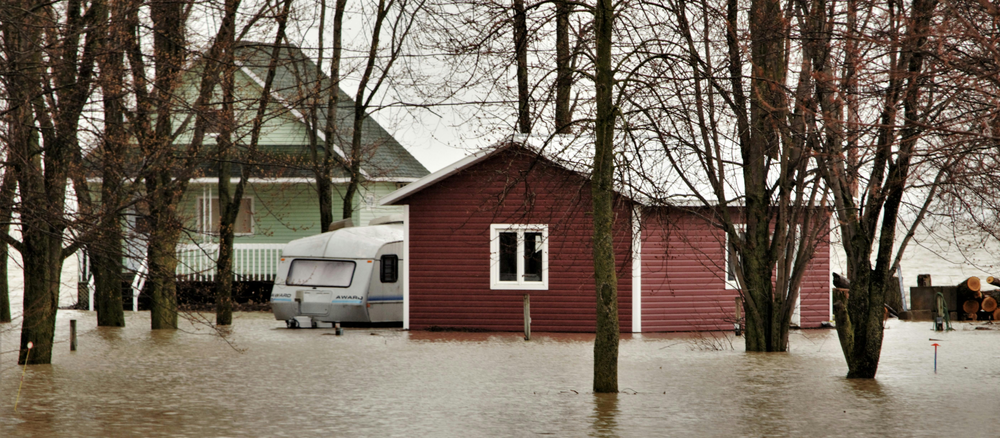In the wake of natural disasters humanitarian efforts are essential to providing relief to communities in need. One of the most overlooked yet critical resources in these efforts is fuel. Propane, with its versatility, portability, and reliability, has emerged as a key player in humanitarian aid. Whether it’s powering emergency relief shelters, providing cooking fuel for displaced families, or enabling lifesaving medical care in remote areas, propane plays a vital role in humanitarian missions worldwide.
In this article, we’ll explore how propane is helping organizations meet urgent needs in disaster-stricken areas and why it’s an essential resource for humanitarian efforts.
The Importance of Energy in Humanitarian Aid
Access to energy is one of the most pressing challenges in humanitarian situations. Whether in larger metropolitan areas, or rural communities affected by natural disasters, reliable energy is needed for essential services like heating, cooking, lighting, and healthcare. Without energy, humanitarian organizations would struggle to provide food, shelter, and medical assistance to those who need it most.
Propane offers a portable, efficient, and reliable energy solution that can be quickly deployed in emergency situations, making it an invaluable tool for humanitarian organizations.
How Propane Supports Humanitarian Efforts
1. Emergency Cooking Solutions
In the aftermath of a disaster, one of the most immediate needs is access to food. For displaced families, cooking fuel is often scarce or unavailable, making it difficult to prepare meals. Propane provides a safe and efficient solution for cooking, allowing families to prepare food even in the most challenging conditions.
- Portable Cooking Stoves: Propane-powered portable stoves are often distributed to displaced families in disaster zones. These stoves provide a reliable source of heat for cooking and are easy to transport and set up.
- Clean and Safe Fuel: Compared to traditional biomass fuels like wood or charcoal, propane burns cleanly, reducing indoor air pollution and the health risks associated with smoke inhalation. This is especially important in densely populated areas, where indoor air quality can quickly become a health hazard.
2. Providing Heat and Warmth in Crisis Zones
In colder climates or during winter months, access to heating is essential for survival. Propane-powered heaters are often used in emergency shelters, tents, and makeshift housing to provide warmth for families displaced by natural disasters.
- Efficient Heating: Propane heaters provide a powerful, efficient source of heat that can quickly warm large spaces, making them ideal for temporary shelters or camps.
- Portable and Easy to Use: Propane heaters are lightweight and easy to transport, allowing aid workers to quickly set them up in emergency shelters. This portability is crucial when dealing with rapid-onset disasters like earthquakes, hurricanes, or floods.
3. Powering Medical Services and Equipment
In humanitarian crises, access to medical care is often limited by the availability of electricity. Propane generators provide a reliable power source for hospitals, clinics, and mobile medical units operating in remote or disaster-affected areas. Propane can power critical medical equipment, such as ventilators, refrigerators for vaccines, and lighting for nighttime operations.
- Backup Power for Hospitals: In areas prone to natural disasters, hospitals often rely on propane-powered generators to provide backup power during electricity outages. These generators ensure that critical medical services can continue uninterrupted, saving lives in the process.
- Reliable Power for Field Clinics: Mobile medical units and field clinics often operate in areas without access to electricity. Propane provides a reliable and portable power source for these clinics, enabling them to deliver essential healthcare services to those in need.
4. Supporting Clean Water and Sanitation Efforts
Access to clean water and sanitation is one of the most urgent needs in humanitarian crises. Propane plays a role in powering water pumps and heating water for sanitation purposes, helping to prevent the spread of disease in disaster-affected areas.
- Water Pumps: Propane-powered water pumps are used to extract and distribute clean water in disaster zones. These pumps provide a reliable source of clean water for drinking, cooking, and hygiene.
- Water Heating: Propane water heaters are used to provide hot water for sanitation, including handwashing stations and bathing facilities. In disaster zones, access to hot water is critical for maintaining hygiene and preventing the spread of illnesses.
5. Fueling Transportation and Logistics
In disaster response scenarios, time is of the essence. Propane-powered vehicles and equipment play a crucial role in transporting supplies, personnel, and aid workers to affected areas. Whether it’s fueling forklifts in supply warehouses or powering trucks that deliver relief materials to remote regions, propane helps keep humanitarian operations running smoothly.
- Transporting Supplies: Propane-powered vehicles are often used to transport food, medical supplies, and other essential goods to disaster zones. Propane’s low emissions and fuel efficiency make it an environmentally friendly option for humanitarian logistics.
- Fueling Aid Equipment: Forklifts, generators, and other propane-powered equipment are used in relief efforts to load and distribute supplies quickly and efficiently. Propane’s reliability ensures that aid workers can operate equipment without interruptions, speeding up the delivery of aid.
Why Propane is the Ideal Fuel for Humanitarian Efforts
1. Portability and Accessibility
One of propane’s greatest strengths in humanitarian efforts is its portability. Propane cylinders can be easily transported to remote areas or disaster zones where access to other fuels may be limited. This makes propane an ideal choice for rapid deployment in emergencies, ensuring that aid workers have the energy they need to provide relief.
2. Clean and Safe
Propane burns cleanly, producing fewer emissions than other fossil fuels like diesel or gasoline. This is especially important in humanitarian contexts where air quality and environmental sustainability are major concerns. Propane’s clean combustion reduces the risk of harmful pollutants, making it a safer choice for indoor use in shelters or camps.
3. Reliable and Efficient
In crisis situations, reliability is key. Propane offers a stable, reliable source of energy that can operate in a wide range of conditions, from extreme heat to freezing cold. It also has a high energy density, meaning that smaller quantities of propane can provide more power than other fuels, making it more efficient for long-term humanitarian operations.
4. Cost-Effective
Propane is often more cost-effective than other fuels, allowing humanitarian organizations to stretch their budgets further. With limited resources and growing needs, the affordability of propane makes it a practical choice for organizations working to deliver aid on a large scale.
Propane's Growing Role in Humanitarian Innovation
As the world faces increasing natural disasters and humanitarian crises, propane’s role in relief efforts is set to grow. Humanitarian organizations are constantly seeking innovative ways to improve their operations and reduce their environmental impact. Propane, with its combination of portability, reliability, and efficiency, is at the forefront of this innovation, helping to power sustainable and effective humanitarian missions.
From disaster recovery to long-term aid, propane provides a versatile energy solution that can adapt to the unique challenges of each crisis. Its role in humanitarian efforts highlights its importance as a life-saving resource that ensures aid reaches those in need, no matter where they are.
Conclusion
Propane plays an essential role in humanitarian efforts, providing a reliable and efficient source of energy for cooking, heating, medical services, and transportation. Its portability, clean-burning properties, and cost-effectiveness make it an invaluable resource for organizations working in disaster-affected areas.
As the world continues to face increasing challenges, propane’s importance in humanitarian missions will only grow. Its ability to support vital services in even the most remote and difficult-to-reach locations ensures that propane will remain a cornerstone of humanitarian aid for years to come. If you are looking for propane services for your home, check out Tankfarm.io.




